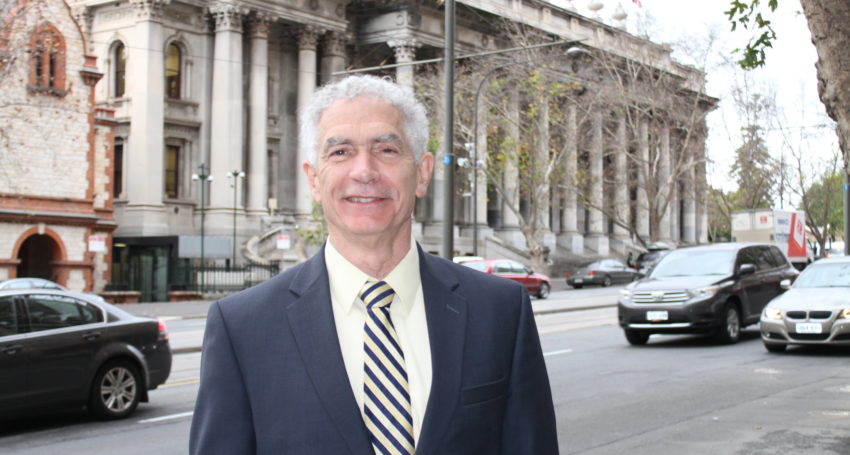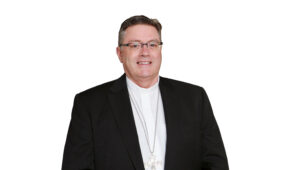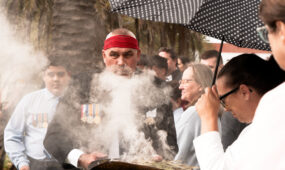Fighting assisted suicide at all costs
News
American Professor William L. Toffler was in Adelaide this week to speak about his personal experience of working as a doctor in Portland, Oregon, where physician-assisted suicide has been legal for the past two decades.

While it may be hard to beat the “economy” of giving an overdose and ending the life of a terminally ill person, the reality is that every life is “valuable and worthwhile” and should be lived to its natural end, no matter the cost.
That is the message of Professor William L Toffler MD from Portland, Oregon, which in 1997 became the first state in the USA to legalise assisted suicide, which in effect allows terminally ill, mentally capable adults to self-administer medication to shorten their lives.
Advertisement
Prof Toffler said that since this law was enacted he had witnessed a “profound shift in attitude toward medical care” with a “new fear and secrecy, and a fixation on death”.
“As a professor of family medicine at Oregon Health & Science University in Portland, as well as a licensed physician for 40 years, I have seen first-hand how the law has changed the relationship between doctors and patients, some of whom now fear that they are being steered toward assisted suicide,” the anti-euthanasia advocate said.
“The way that physicians respond to patients’ requests for lethal drugs has a profound effect on their choices and their view of themselves and their inherent worth. Such patients deserve doctors who will support them through their illnesses, not offer them a quick exit.”
Prof Toffler said statistics showed that the fear of untreatable pain and “dying without dignity”, as well as being a “burden” on their loved ones were the most common reasons given by people wanting to end their lives. There is also pressure from health insurers – including the State of Oregon’s health plan for the uninsured – which is restricting coverage for some costly treatments, especially if the patient is perceived to have a “poor prognosis”.
“It’s hard to beat the economy of giving an overdose which is a one-time expense, in contrast with ongoing care that can cost tens of thousands or even hundreds of thousands of dollars. But life is valuable at all of its stages; patients deserve care – not killing.”
A devout Catholic, Prof Toffler said his presentations in Australia to members of parliament and the community at large were based on facts, not his beliefs. There was also an element of his personal experience in having cared for his father who had advanced Parkinson’s disease, and the death three years ago of his wife Marlene to cancer.
“We’d been married for 40 years. The final five years we both knew she would inevitably die of her cancer. At one point doctors told her that she had only three to nine months left, yet she lived more than four times as long.
“I wouldn’t wish cancer on anyone, but because my wife had cancer and we knew she had a limited time, we lived our lives differently. In retrospect, our last five years together were among the best years of our lives. Every day was special. We didn’t take the things for granted as we might have in the first 35 years of our marriage.
Advertisement
“At times there was great suffering, but there was also great joy and meaning in the special moments we and our seven children shared together – moments that became all the more special the closer we came to the end of her life.”
Speaking with The Southern Cross, Prof Toffler said there needed to be some “clarity from the Church” and “truth from the pulpit” about physician-assisted suicide.
“It’s sad and an indictment on us as a faith community that we allow people to present themselves as Catholic, and somehow compassionate, because they believe the solution to suffering is to kill the sufferer. We need to call them on that and say, that is not a Catholic response to suffering.
“Mother Teresa was a good example. People questioned her and said, ‘why bother, they are just going to die anyway’, but she understood that no-one should die alone and everyone deserves care and comfort – especially when they are dying,” he said.
Prof Toffler’s national speaking tour was hosted by Right to Life Australia and comes in the lead-up to Victoria voting on an ‘assisted dying’ legislation, which is likely to happen next month. He said it was important that those debating the issue be aware of all the facts and see how assisted suicide had gone wrong in other countries.
“I think everyone deserves to be informed. It’s clearly been a mistake in Oregon and I would urge all Australians, whether they are Catholic or atheist, to not make Oregon’s mistake.
“As a society we should continue to reject the legalisation of physician-assisted suicide as a solution to suffering. Instead Australians should work to improve what is already an outstanding health care system that does not need the State or Federal governments to be funding and supporting assisted suicide while they are limiting care in other ways.”








Comments
Show comments Hide comments